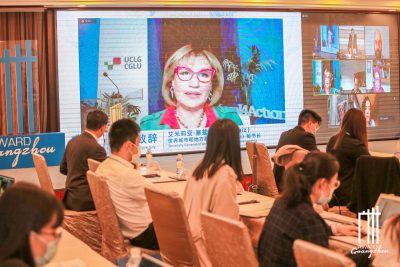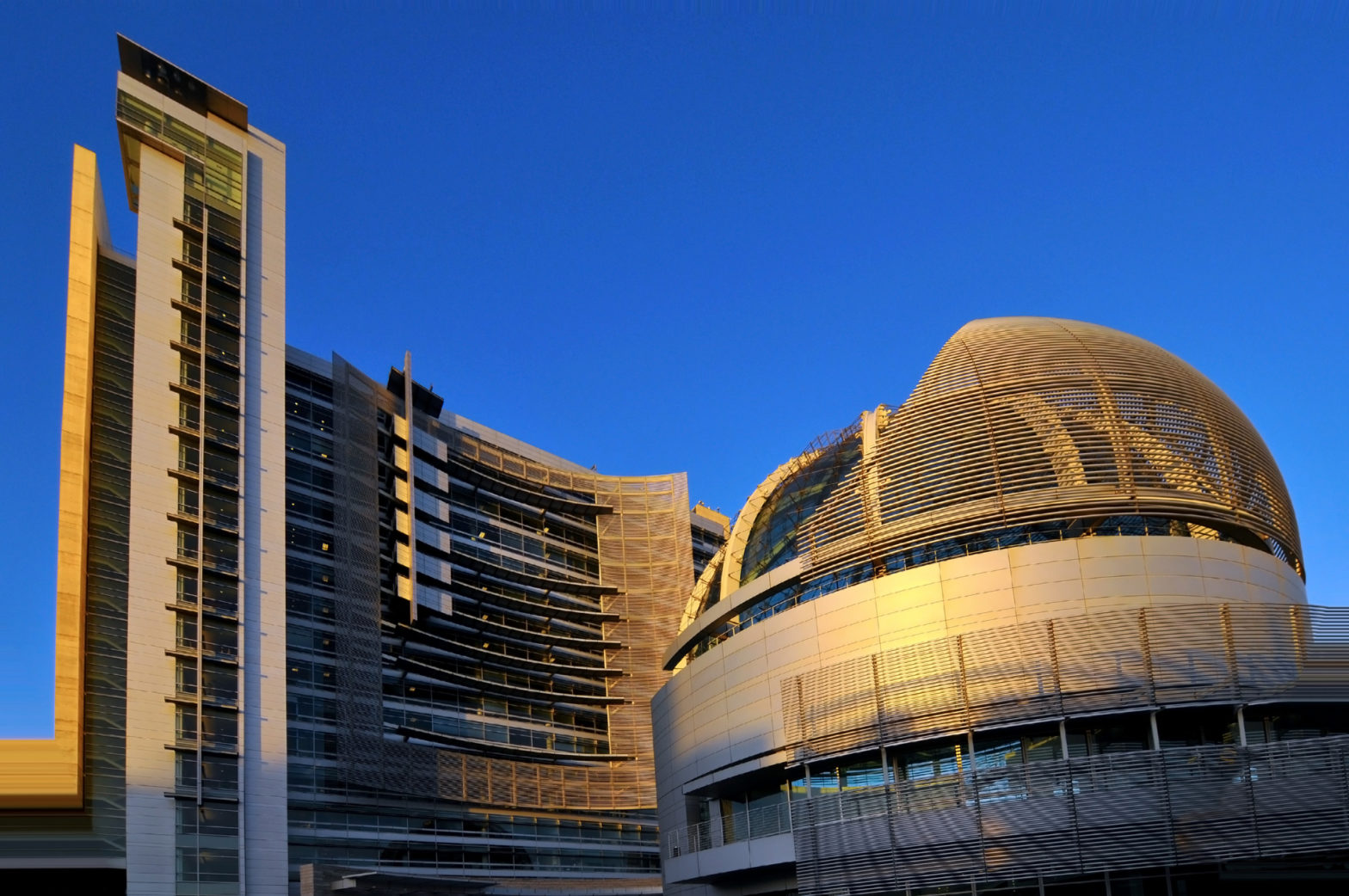
Photo: Guangzhou meeting
Fifteen cities make the Guangzhou Award shortlist
26 February 2021
by Sarah Wray
Projects shortlisted for the latest Guangzhou Award include Lebanon’s work to engage citizens in the COVID-19 emergency response, cycle superhighways in Denmark’s Capital Region and green river regeneration in Breda, the Netherlands.
A total of 273 initiatives from 175 cities and local governments in 60 countries and regions were submitted for the fifth Guangzhou International Award for Urban Innovation.
The biennial Guangzhou Award was launched in 2012 and is run in partnership with the City of Guangzhou, China; United Cities and Local Governments (UCLG); and the World Association of the Major Metropolises (Metropolis). It recognises innovation in social, economic and environmental issues and aims to share best practices between cities globally.
The award is judged by a Technical Committee of experts including representatives from academia, non-governmental organisations and the private sector.
Octavi de la Varga, Secretary General of Metropolis, said: “The Covid-19 pandemic has placed cities and city leaders at the forefront of the fight and in adapting policies, rethinking our urban development, and looking for creative solutions. And I think this is at the heart of the Guangzhou Award.”
Leading projects
The finalists include:
Unley, Australia: Developing age-friendly community co-design principles with older residents to inform new co-housing options.
Vienna, Austria: The Werkstadt Junges Wien initiative aims to make Vienna the most child-and youth-friendly city in the world.
São José dos Pinhais, Brazil: Brazil has seen a spike in Yellow Fever, which is transmitted from animals to humans via mosquitoes. The SISS-Geo mobile app allows residents to register and geo-code any sighting of dead animals or potentially contaminated areas with the municipal health department.
Chongqing, China: The city has introduced innovative emergency solutions for urban medical waste disposal during the pandemic.
Capital Region of Denmark: Thirty municipalities have joined forces to create ‘cycle superhighways’ to support commuting by bike across municipal borders.
Quito, Ecuador: Quito’s Eco Efficiency Ordinance incentivises the construction of high-density green buildings on key transportation nodes, with provisions for affordable housing.
Odisha, India: The Urban Wage Employment Initiative (UWEI) gives the province’s urban workforce a guaranteed minimum number of workdays annually at a specified daily wage.
Berhampur, India: Berhampur Municipal Corporation passed a resolution to adopt the Faecal Sludge and Septage Management (FSSM) Regulations 2018 to ensure safe and sustainable disposal. It also passed resolutions to partner with local women’s collectives in each component of the FSSM value chain.
Bandung, Indonesia: The Riung Bandung Public Health Service developed an initiative to address malnourishment and stunting in children.
Union of Dannieh Municipalities, Lebanon: The Union used tools such as WhatsApp to engage citizens in the Emergency Response Plan to fight COVID-19.
Antananarivo, Madagascar: The authorities have sought to build resilience into the city food system through adapted production systems.
Breda, Netherlands: Breda is planning nature-inclusive green quays linked to public green spaces as part of a bigger scheme to restore the river Mark.
Departmental Council of Saint Louis, Senegal: The Council developed a new approach to environmental governance which integrates the restoration of mangrove ecosystems across three municipalities with strategies for addressing climate challenges and enhancing jobs.
Cape Town, South Africa: The Western Cape Industrial Symbiosis Program (WISP) has created a platform to help transform the city into a circular economy.
Los Angeles, United States: LA is using open-source tools to report local action on Sustainable Development Goals (SDGs).
The 15-strong shortlist was whittled down from a longlist of 45 ‘deserving initiatives’, including Buenos Aires’ Barrio 31 social and integration plan; Dubai’s use of artificial intelligence (AI) in its pandemic response; and Bogota’s temporary cycling tracks to support social distancing during the pandemic.







